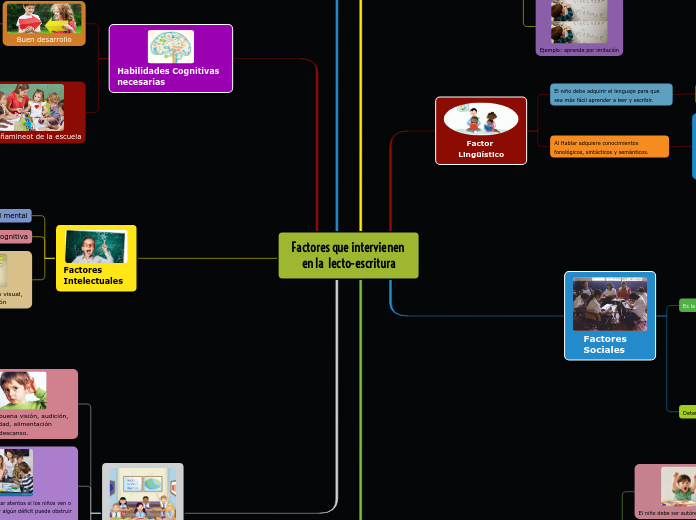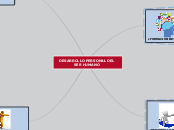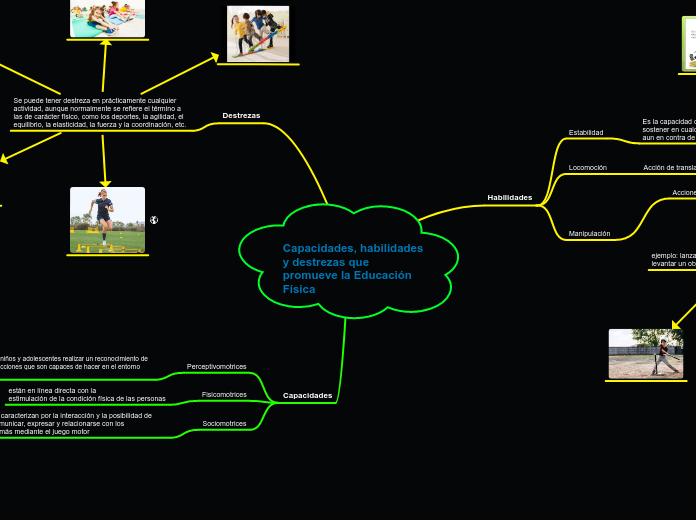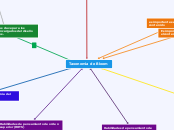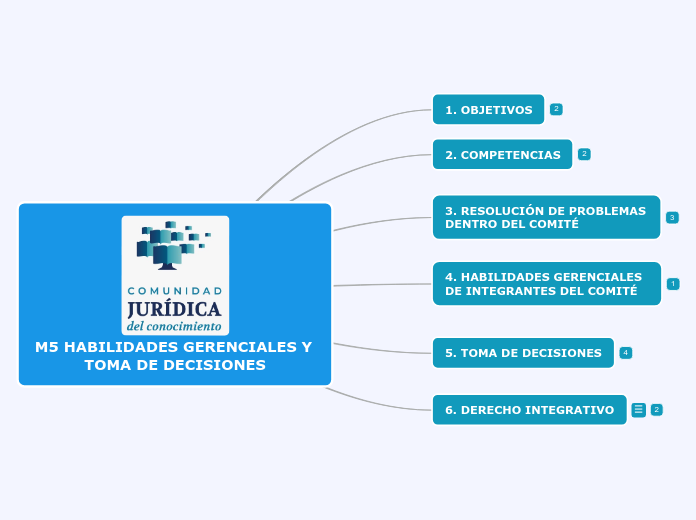Factores que intervienen en la lecto-escritura
The first division between continents was made by ancient Greek navigators, who named them 'landmass, terra firma'.
Generally classified by convention rather than any strict criteria, nowadays seven regions are regarded as continents from a geopolitical point of view.
Factores Físicos
Antarctica is not only the coldest place on Earth but also the highest, driest, windiest and emptiest, completely covered with ice.
75% of the world's ice and 70% of the Earth's fresh water is located here.
Summer months of December to February give 24 hours of light, while the winter months of late March to late September are pitch dark the whole day.
There are no permanent inhabitants, except for scientists maintaining research stations in Antarctica.
Ejemplo 2: si escucha de lado debe dirigirse a un especialista
There is plenty of animal life in Antarctica. It is a continent of extreme conditions but a range of well-adapted animals thrive here at various times of the year.
Name at least 5 of these animals.
Ejemplo 1: los frenillos
Antarctica sees half a year of light and half a year of complete darkness.
Write down which months give 24 hours of light, and which are the ones that give pitch darkness the whole day.
Padres y docentes deben estar atentos si los niños ven o escuchan bien ya que, si hay algún déficit puede obstruir la capacidad lectora.
The coldest natural temperature ever recorded on Earth was recorded here.
Write it down.
Se requiere buena visión, audición, psicomotricidad, alimentación adecuada y descanso.
Write down the temperatures of the Frozen Continent during the summer and the winter.
Factores Intelectuales
Desarrollan: memoria visual, atención, diferenciación
6 años ya tienen capacidad cognitiva
Tiene que ver con la capacidad mental
Habilidades Cognitivas necesarias
You can find on this continent:
- the world's largest river as per water volume, the Amazon.
- the highest volcanoes of the world -- Mt. Cotopaxi and Mt. Chimborazo.
- the country, Brazil, which is the largest coffee producer in the world.
- the second-highest mountain range in the world, the Andes.
Acompañamineot de la escuela
Buen desarrollo
The world's largest snake and the second-longest lives here.
Name this snake as well as other animals that can be found in South America.
Lateralidad
Coordinación
Manipular materiales
muscular
Sensorial
Caso práctico
North America has five time zones and it is the only continent with every type of climate.
North America was named after the explorer Amerigo Vespucci and is also known as the 'New World'.
The world's largest sugar exporter among the seven continents - Cuba - also called the 'sugar bowl of the world' is located here.
Link de Kahoot
Native Americans have lived along this river and its tributaries for thousands of years. Most were hunter-gatherers, but some formed agricultural societies.
Formed from thick layers of the river's silt deposits, this river's embayment is one of the most fertile regions of the United States; steamboats were widely used in the 19th and early 20th centuries to ship agricultural and industrial goods.
Name this river.
https://create.kahoot.it/details/e3518b76-43aa-4567-99a1-4cbf91ab5220
Link de presentación
There are 23 countries that make up North America.
Name as many of you can! Don't forget about their capitals.
https://indoamericaedu-my.sharepoint.com/:p:/g/personal/chenry_indoamerica_edu_ec/Edt7ONEFTY1Jm_ZO65WdCKsBM3IkXgxqJujmxuglrbl-vA?e=crsdox
Factores Emocionales
Australia is the world's smallest continent and is also known as an 'island continent' as it is surrounded by water on all sides.
It includes 14 countries and it is the least populated continent.
Its name comes from the Latin word 'australis' meaning 'southern' because it lies entirely on the south of the equator.
Ejemplo 2: Los docentes o padres no deben exigir ya que pueden crear estrés.
Ejemplo 1: No se debe mimar al niño porque los niños serán dependientes.
The largest coral reef can be found here.
Name this coral reef, add its length and mention what type of coral is it.
El niño debe ser autónomo e independiente
Out of 14, how many countries you can name?
How about these countries' capitals?
Factores Sociales
Of the seven continents of the world, Africa is the second largest.
Africa comprises 54 countries and it is the hottest continent.
The equator passes through the middle of Africa and it receives direct sunlight throughout the year.
The world gets 66% of its chocolate, 50% of the gold and 95% of the diamonds from Africa.
Determinan la calidad de aprendizaje.
The world's longest river can be found here, famed for its ancient history and the archaeological sites along its shores.
This river gave rise to the early Egyptian civilization.
Name this river and add its length.
Es la relación del niño con el entorno
Out of 54, how many countries you can name?
How about these countries' capitals?
Comunidad
Familia
Escuela
Factor Lingüístico
Asia is the world's largest continent of the seven continents in size, as it covers one-third of the earth's surface.
It includes 50 countries, and it is the most populated continent, 60% of the total population of the Earth lives here.
Al Hablar adquiere conocimientos fonológicos, sintácticos y semánticos.
What are the major animals found in Asia?
Name at least 4 of these animals.
Name
El niño debe adquirir el lenguaje para que sea más fácil aprender a leer y escribir.
Asia houses the highest point on earth.
Name this summit and write down how tall it is.
Lo adquiere en el nivel inicial y lo va desarrollando.
Factor madurativo
Europe is separated from Asia by the Ural mountains and the Caspian Sea.
It is surrounded by water on three sides: Mediterranean Sea in the south, Atlantic Ocean in the west, and the Arctic Ocean in the north.
Three-fourth of the world's potatoes grow in Europe.
Ejemplo: aprende por imitación
Se considera maduro cuando aprende con
Sin estrés
Sin tensión emocional
Facilidad
El niño debe estar preparado para iniciar el proceso de lecto-escritura
Europe has many exceptional animals, birds, and reptiles with unique methods of staying and hunting.
Name at least 4 of them.
Name
